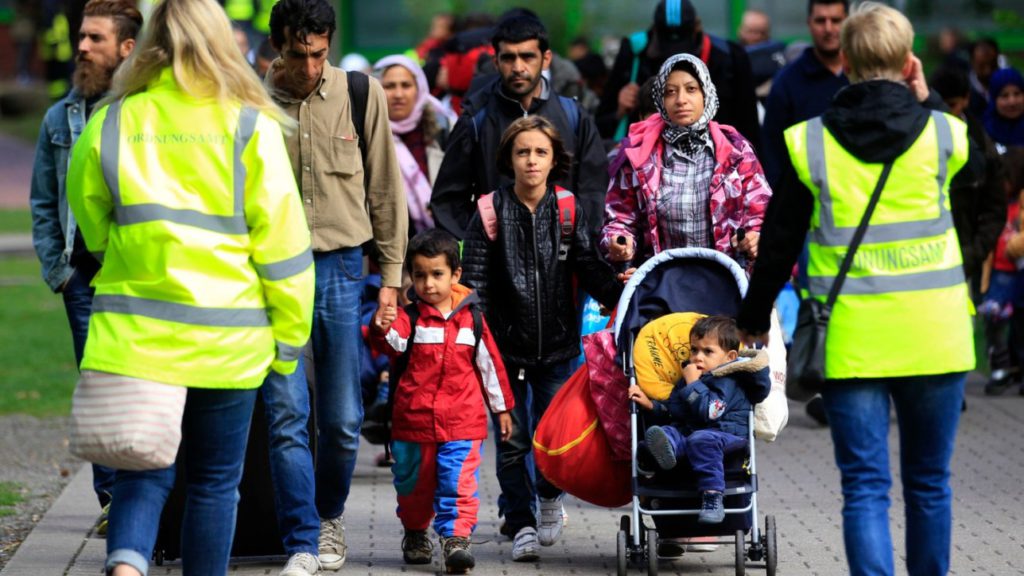


Sami Mousa – SY24
Cultures differ from one country to another, and there is sometimes a diverse number of cultures in one single city. This diversity is reflected in the various combinations of cultural identities in human beings, in terms of norms, traditions, values, languages, and religions.
Thousands of years ago, trade between states and kingdoms was the only means of communication between cultures; but today, in our socially open world, connecting to other cultures has become much easier due to the discoveries of the technological revolution, especially after the Arab Spring, which gave us more reasons to stay connected to different cultures.
In Syria, particularly, and after the revolution of March 15, 2011 against the governing regime, and as a result of the suppression that the Syrian people faced, around five million and a half Syrians were forced to flee as refugees or displaced people to escape destruction and war, according to a report issued by the United Nations Higher Commission for Refugees (UNHCR). Syrians have used all countries across the world as an escape haven and have started new journeys amongst diverse cultures that are completely different from their own.
Journalist Alaa Sabra, a refugee in Turkey, told SY24 “the Turkish culture and way of living is completely different from our culture; the difference was a bit scary for me at the start of my journey here, and it was even a barrier for a long time; however, it is no longer a problem today, because social interactions between the Syrians and the Turks have evolved and they now share each other’s cultures.”
It might be easy for Syrians residing in Turkey to build social connections with their fellow Turks, but Syrians residing in Europe have found it more difficult to build social connections with their surroundings due to the larger cultural gap between the Syrians and people of host countries, such as the case of Niveen Maksour, who is a Syrian refugee residing in Germany. Maksour told SY24 “we hesitate a lot to build relations with the Germans; we always wait for them to initiate, due to the big difference between our culture and their culture. Any small social connection with people here, even if it was as small as just greeting someone, is a huge achievement, and that’s because people here are very busy.”
For his part, human rights activist Yaser Khaleefa, who fled to Germany, said “many refugees tend to isolate themselves into small communities or groups, because they do not speak the language of the country they reside in. They would have their own markets, clubs, and gatherings that are isolated from local communities, which is sometimes uncomfortable for the host community.”
On the other hand, the cultural diversity has played a role in developing the lives of many Syrians in host countries on all levels. Some of them have made use of this diversity to succeed; such as the refugee Malaka Jazmati, who was selected as a head chef for VIP guests of the Berlin Film Festival, and the child Najeeb Ward, who excelled in the German language even more than Germans themselves, and many other examples.
As for journalist Nawras Yakon, who resides in France, he had a positive input on being a refugee. He told SY24 “we are in a really good place to get to know a limitless number of nations and cultures, which helps make the Syrian society more open and welcoming.”
Diversity is considered one of the main sources for human development, and the best means to achieve a more satisfactory intellectual, emotional, and moral existence, as stated by the universal declaration on cultural diversity in its 3d article.
In another context, cultural diversity had negative consequences on the lives of some Syrians, as several news reports have documented numerous attacks carried out against Syrian refugees and other refugees in host countries; and one of the main reasons for such attacks was the cultural difference.
Sociologist Safwan Qasem told SY24 “cultural diversity often has a positive impact on societies, but that’s usually when it comes by natural means; as for Syrians, since the conditions of their displacement was not natural, they were divided into two kinds within their new societies.” he added “one kind is smart, ambitious, able to integrate, and was able to achieve many success stories economically and in many other ways; and the other kind is the unstable kind that finds it hard to adapt and ends up committing legal violations in the host country, a behavior that had its negative influence on Syrians in general.”
Despite cultural differences and diversity, humans remains the real core of any culture on this planet. The sense of belonging to humanity is the real connection between all cultures and the force that can confront all sorts of ethnic and religious prejudice between members of the same society; it is the only way to build a strong cohesive community.
Input your search keywords and press Enter.